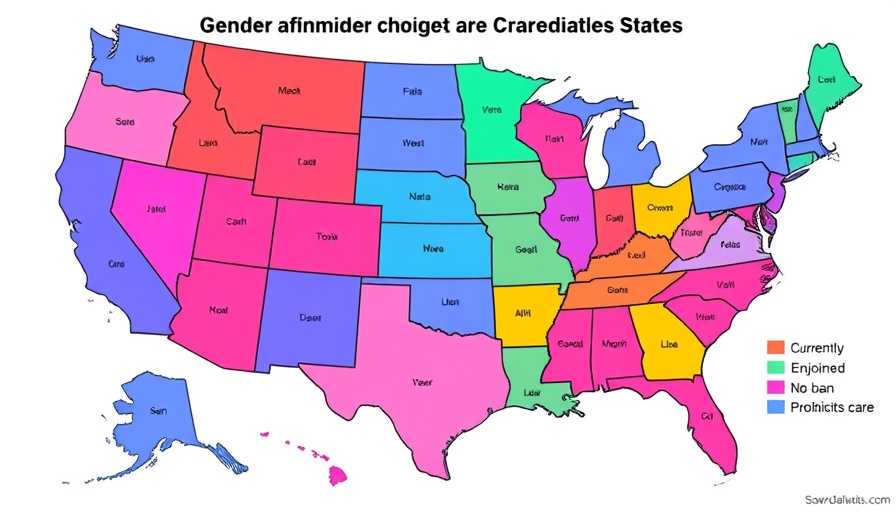
The Supreme Court's Landmark Decision on Gender Affirming Care
As of June 18, 2025, access to gender-affirming care for minors has taken a significant turn in the United States, following the Supreme Court's ruling in the case of United States v. Skrmetti. The Court issued a 6-3 verdict, supporting Tennessee's SB1 law, which bans such care for minors. This decision echoes a momentous trend in current legislation, where numerous states have begun restricting access to health care for transgender youth.
Understanding the Ruling's Implications
The ruling has profound implications. While it validates Tennessee's law, which contends that minors lack the capacity to make such significant healthcare decisions, it also sets the stage for similar bans in at least 25 other states that have enacted similar legislation. Instead of engaging with arguments pointing towards the law discriminating based on sex, the Court reasoned that the law classifies according to age and medical diagnosis, thereby sidestepping heightened scrutiny aimed at protecting marginalized groups under the 14th Amendment.
Patching Up Healthcare Equality
Currently, various states are still navigating the legality of gender-affirming care for minors with disparate outcomes. For instance, Arkansas and Montana have seen bans blocked through court orders, indicating the ongoing tussle between state legislation and individual rights. However, as the Court's ruling stands, many parents may find themselves confined by laws that affect their children's access to crucial health care resources.
Voices of Dissent: A Call for Justice
Justice Sonia Sotomayor, who dissented alongside Justice Jackson, argued that SB1 should undergo heightened scrutiny since it affects transgender youth, essentially challenging the notion of rational basis as the standard. Their dissent speaks volumes in favor of protecting the rights of minors to receive appropriate care, framing the discussion on family autonomy and equality under the law.
For affected families across the nation, this ruling may feel isolating and unjust—a stark reminder of the ongoing battle for equal rights in healthcare access. As communities, embracing these narratives is essential. By advocating for comprehensive healthcare that includes transgender youth, we have an opportunity to reshape this dialogue.
 Add Row
Add Row  Add
Add 




Write A Comment